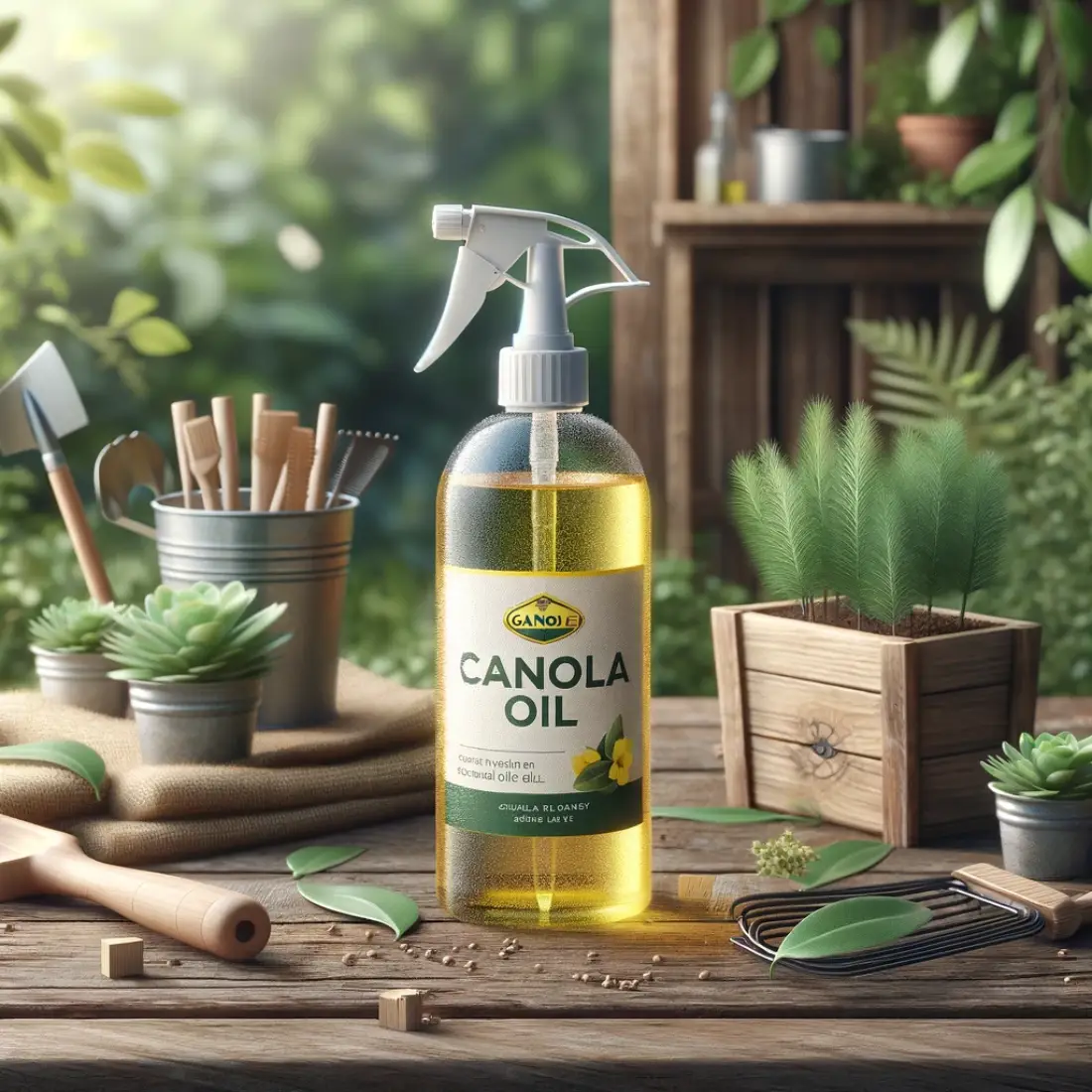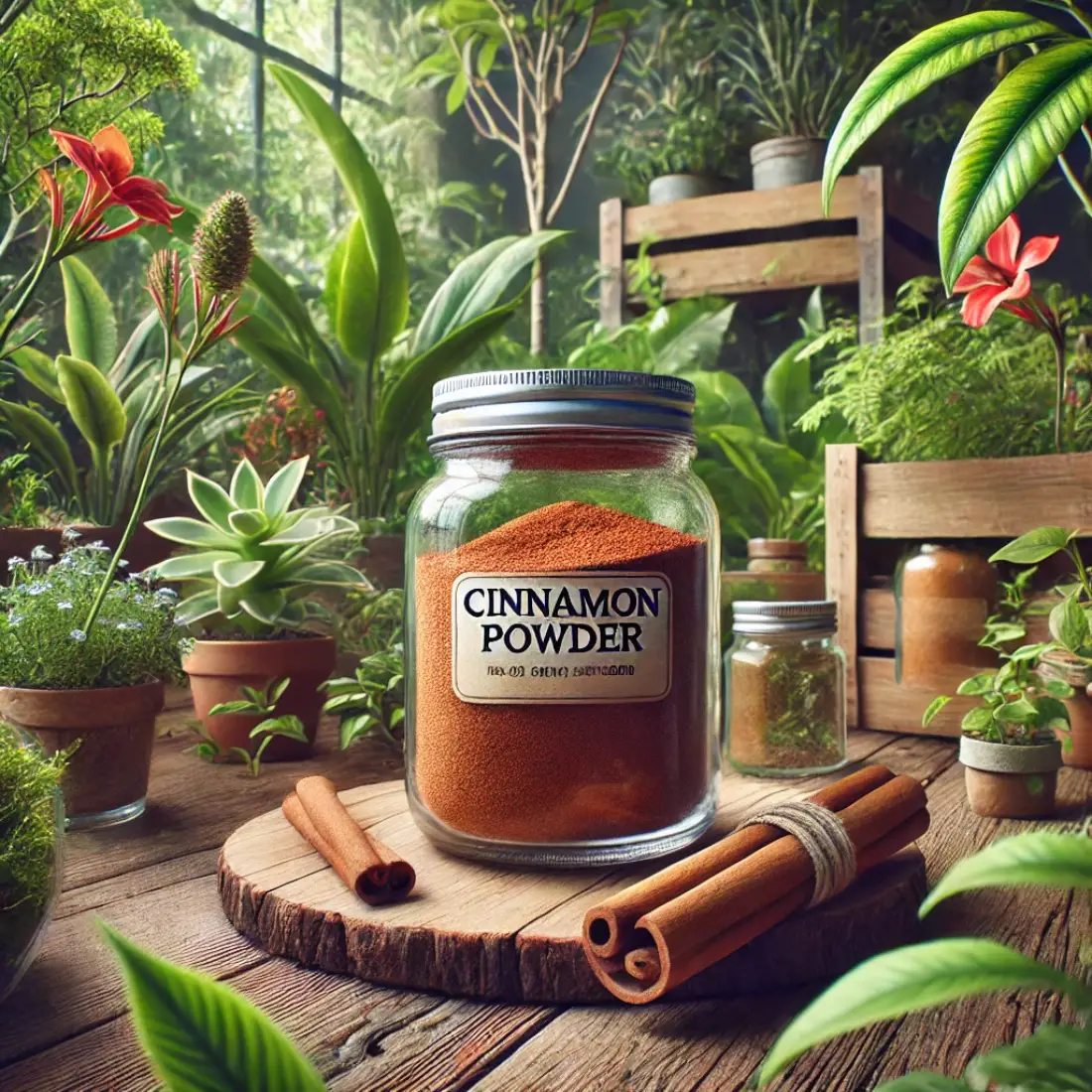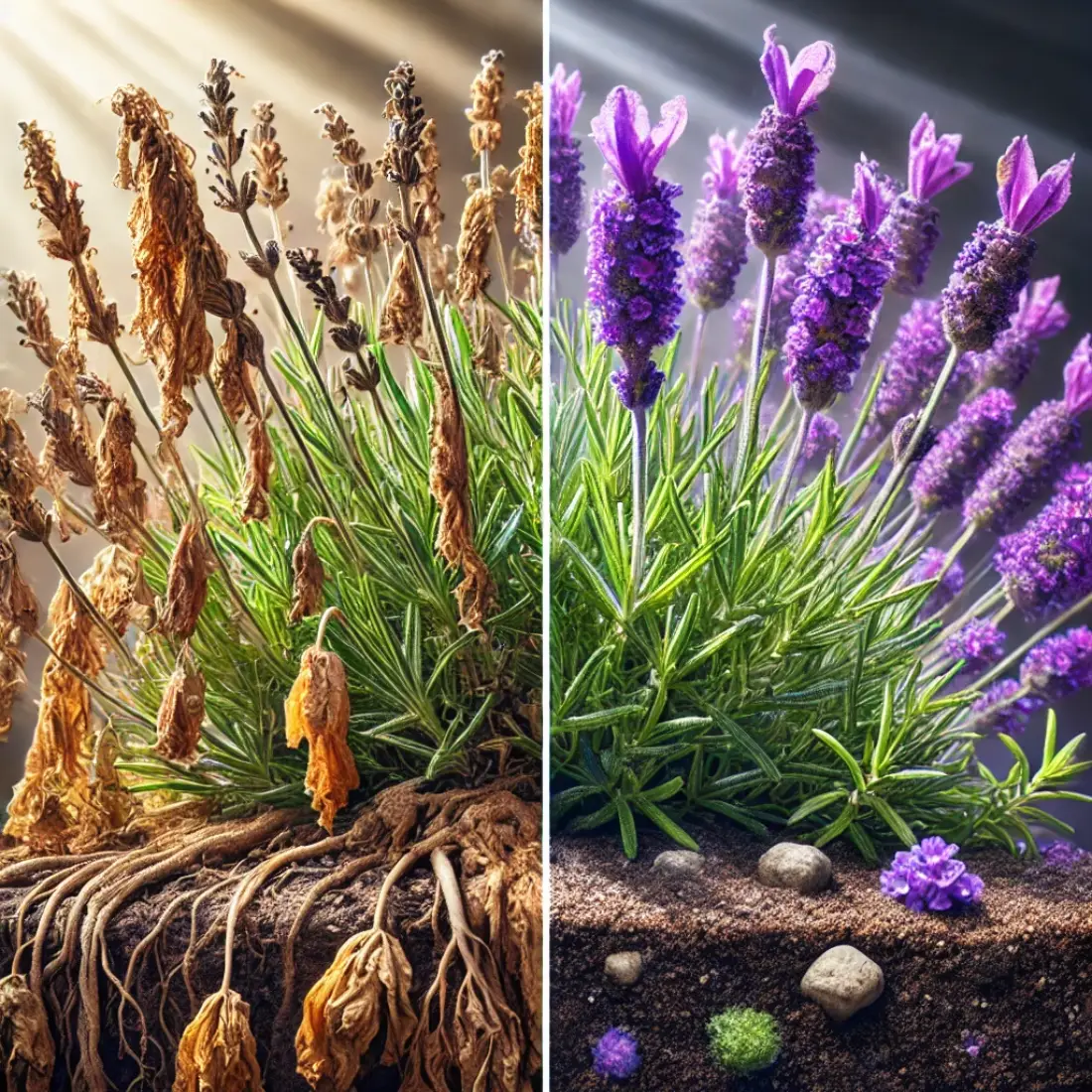Canola oil, derived from the seeds of the canola plant, is a versatile and eco-friendly option in gardening. Rich in essential fatty acids, it’s commonly used as a natural alternative to chemical pesticides. When applied correctly, canola oil can effectively control pests like aphids and spider mites, while also preventing certain fungal diseases.
Additionally, it improves soil texture and promotes healthy plant growth. Unlike harsh chemicals, canola oil is safe for most plants and beneficial organisms, making it an excellent choice for sustainable, organic gardening practices.
- Canola oil is an effective and natural solution for controlling garden pests.
- It helps in preventing fungal diseases like powdery mildew.
- Soil health and moisture retention can be improved with canola oil.
- It is a safe and eco-friendly alternative to chemical pesticides.
- Canola oil promotes healthy plant growth and supports sustainable gardening practices.
- It’s versatile, being useful in various DIY garden products, from insecticidal sprays to leaf shine solutions.
DIY Garden Products Using Canola Oil
Canola oil is a versatile ingredient for creating various DIY garden products that are both effective and eco-friendly. One popular use is making homemade insecticidal soap. By mixing one tablespoon of canola oil with a few drops of dish soap in a quart of water, you can create a powerful spray to combat pests like aphids, mites, and whiteflies. Simply apply the spray directly to the affected plants, ensuring full coverage on both sides of the leaves.
Another great use for canola oil is in a leaf shine solution. Mix a small amount of canola oil with water and a few drops of lemon juice to create a natural polish for plant leaves. This solution not only gives leaves a healthy shine but also helps prevent dust buildup and deters pests.
For gardeners dealing with stubborn weeds, canola oil can be used to make a natural weed killer. Combine canola oil with vinegar and a bit of salt to create a DIY herbicide. Spray this mixture on unwanted plants to weaken them without using harsh chemicals.
Pest Control with Canola Oil
Canola oil is a powerful tool in organic gardening, particularly for pest control. When mixed with water and a few drops of dish soap, canola oil creates a natural insecticidal spray that suffocates pests by coating their bodies, effectively disrupting their ability to breathe.
The application is simple: spray the mixture directly onto the affected plants, ensuring thorough coverage, especially on the undersides of leaves where pests often hide.
Regular application, about once a week, can keep pest populations under control. However, it’s important to apply the spray during cooler parts of the day to prevent leaf burn and to test on a small area first to ensure plant tolerance.
While canola oil is safe for most plants, it’s essential to avoid overuse, as excessive oil can potentially block pores on plant leaves, affecting photosynthesis. By using canola oil in your garden, you can effectively manage pests without harming beneficial insects, making it a key component of sustainable gardening practices.
Disease Prevention Using Canola Oil
Canola oil isn’t just for pest control, it’s also effective in preventing plant diseases, particularly fungal infections like powdery mildew and rust. When used as a foliar spray, canola oil creates a protective barrier on plant leaves, which helps inhibit the growth and spread of fungal spores.
To use canola oil for disease prevention, mix it with water and a small amount of dish soap, then apply it to the plants’ leaves, stems, and any affected areas. This treatment is best done during early morning or late afternoon to avoid potential leaf burn from the sun.
Regular application, about every 7 to 14 days, can significantly reduce the risk of fungal infections. Canola oil is particularly useful for plants prone to mildew and other moisture-related diseases, such as roses, cucumbers, and squashes.
While it’s generally safe for most plants, always perform a patch test on a small leaf section before widespread application to ensure there are no adverse effects. By integrating canola oil into your garden care routine, you can maintain healthy plants and reduce the need for chemical fungicides, supporting an organic and sustainable garden.
Enhancing Soil Health with Canola Oil
Canola oil can be a surprising ally in enhancing soil health. When used as a soil amendment, it helps improve soil structure by increasing its organic content. The oil’s fatty acids break down in the soil, creating a more favorable environment for beneficial microbes and earthworms, which are essential for healthy, nutrient-rich soil.
Applying a diluted mixture of canola oil to your garden soil can also improve moisture retention, particularly in sandy or fast-draining soils. This added moisture retention helps plants better absorb water and nutrients, leading to stronger root systems and more vigorous growth.
To use canola oil for soil health, mix a small amount of the oil with water and apply it to the soil’s surface or incorporate it during soil preparation. Over time, this practice can enhance soil aeration and prevent the compaction that hinders plant growth.
It’s important to use canola oil sparingly, as over-application can lead to excess oil accumulation, potentially harming the plants by blocking oxygen exchange. However, when used correctly, canola oil can significantly contribute to a healthier, more productive garden, supporting sustainable gardening practices by enriching the soil naturally.
Canola Oil as a Plant Growth Booster
Canola oil is more than just a pest control solution, it can also act as a natural plant growth booster. Rich in essential fatty acids, canola oil provides nutrients that can be absorbed by plants, promoting healthier and more vigorous growth.
One way to use canola oil as a growth booster is through a foliar spray. By mixing a small amount of canola oil with water and applying it to the leaves, you can improve the plant’s ability to retain moisture and absorb nutrients. This method is particularly effective for plants with broad leaves, such as tomatoes, peppers, and squash.
Another application method is a soil drench, where the diluted oil mixture is poured directly onto the soil around the plant’s base. This allows the oil’s nutrients to be absorbed through the roots, enhancing overall plant vitality and encouraging stronger root development.
Canola oil can also help protect plants from environmental stressors, such as drought and extreme temperatures, by creating a protective barrier on the leaves and soil. However, it’s crucial to use canola oil in moderation to avoid clogging plant pores or causing oil buildup in the soil. When applied correctly, canola oil can significantly boost plant growth, contributing to a thriving, healthy garden.
FAQs about Canola Oil
Can I use canola oil on all types of plants?
Canola oil is generally safe for most plants, but it’s important to test it on a small area first. Some plants with delicate or hairy leaves may be sensitive to oils and could experience leaf burn.
How often should I apply canola oil in my garden?
For pest control, apply canola oil spray every 7 to 10 days. For disease prevention or plant growth, application every 2 to 4 weeks is typically sufficient.
Does canola oil harm beneficial insects like bees?
When used properly, canola oil is safe for most beneficial insects. Apply it during early morning or late evening when pollinators are less active, and avoid spraying open flowers.
Can canola oil be used in vegetable gardens?
Yes, canola oil is safe for use in vegetable gardens. It’s a great option for controlling pests and diseases on edible plants without resorting to harmful chemicals.
How do I mix canola oil for garden use?
A common mixture is 1-2 tablespoons of canola oil with 1 quart of water and a few drops of dish soap. Shake well before use to ensure the oil is evenly distributed.
Can canola oil help with soil compaction?
Yes, canola oil can improve soil texture by increasing organic matter, which helps prevent compaction and improves aeration.
Will canola oil attract pests or animals to my garden?
Canola oil does not typically attract pests or animals. Its primary use is to deter insects and improve plant health.
Can I store leftover canola oil spray for future use?
It’s best to make canola oil spray in small batches and use it fresh. Stored mixtures may separate or lose effectiveness over time.
Is canola oil a good alternative to neem oil?
Yes, canola oil is a good alternative to neem oil for many garden uses, including pest control and disease prevention, and it’s often more readily available.
Can I use canola oil in combination with other organic garden treatments?
Yes, canola oil can be combined with other organic treatments, such as baking soda for disease control or garlic spray for enhanced pest deterrence, to create a more comprehensive garden care routine.










